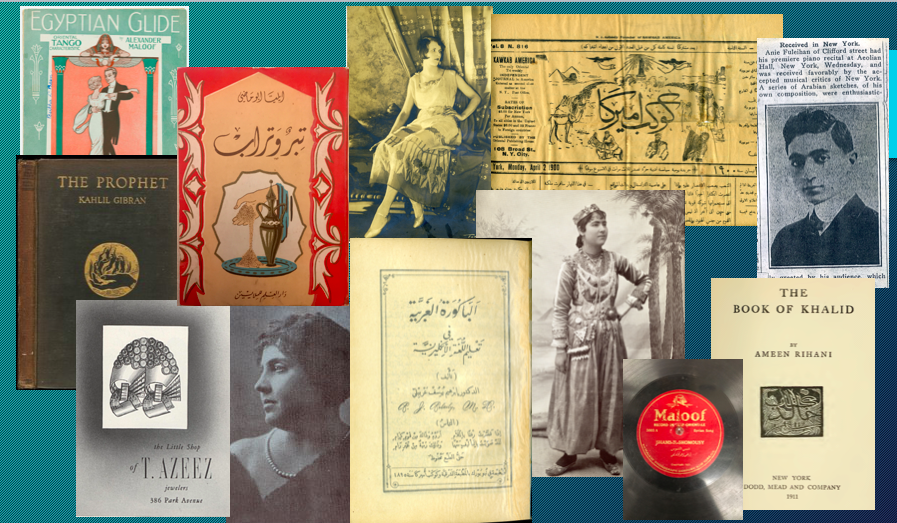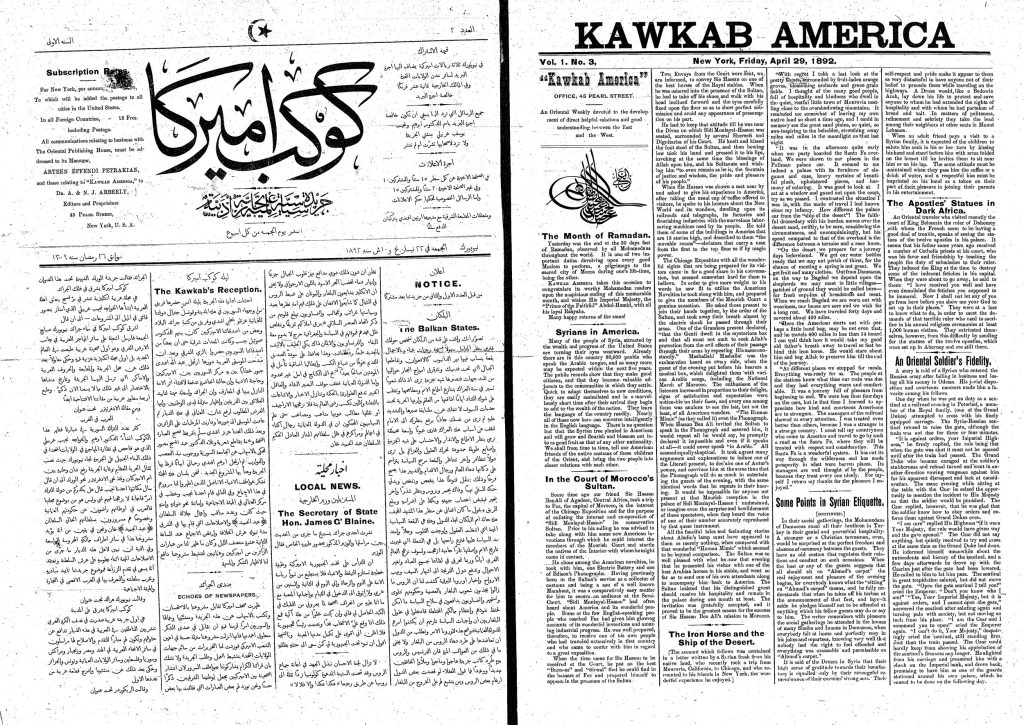Pen Bond
“To lift Arabic literature from the quagmire of stagnation and imitation, and to infuse a new life into its veins…”
A Modern Arab Awakening
An-Nahda would reverberate in Arabic-speaking communities around the world and find early 20th century standard bearers within a fledgling Arabic immigrant community on Washington Street, on the Lower West Side of Manhattan.

An ode to the Pen Bond (ar-Rabitah al-Qalamiyah), the group of Mahjar writers that inspired an extraordinary intellectual and literary movement.
With the cultural upheaval brought on by Napoleon’s invasion of Egypt in 1798, the reformist drive of subsequent rulers such as Muhammad Ali of Egypt, along with the onset of the “reorganization,” or Tanzimat of the Ottoman Empire in 1839, a cultural movement was set in motion across Egypt and throughout Ottoman-ruled Arabic speaking territories, including what was once Greater Syria. Referred to as an-Nahda in Arabic, loosely translated as the “Renaissance” or “Awakening,” it was a period of profound intellectual modernization and reform between 1870 and 1950, not seen in the Arab world since the great cultural flourishing in Islam between the 8th and 14th centuries.
Part of a wave of emigrant literati throughout North and South America, some of whom were educated in American, French and Russian missionary schools, they were part of what would come to be known as the Mahjar School (Emigrant School) of writers. Free from Ottoman censorship, and aided by new printing technologies, the colony on Washington Street became a center of prolific literary output, producing dozens of newspapers in the 19th and early 20th centuries.
Newspapers and magazines published in the Washington Street Syrian Colony traveled all over the United States and to South and Central America, Europe, Asia and to the Syrian homeland itself. The articles and opinion pieces on the politics of the day—both American and Middle Eastern—influenced the course of Syrian political thought. The writing not only served as a link to the colonists’ homeland, but also became the voice of a distinctly new and evolving Arab-American identity. Poetry, often first appearing in the newspapers, transformed Arabic literature.
In life, there is something limitless and without end. Something that cannot be bought with money. Something that cannot be erased by autumn tears, nor killed by the sadness of winter... Something frozen in spring and fruitful in summer... It is love
Gibran Kahlil
Gibran
في الحياة شيئاً لا حد له ولا نهاية. شيئاً لا يشترى بالمال. شيئاً لاتمحوه دموع الخريف ولا يميته حزن الشتاء... شيئاً يتجلد في الربيع ويثمر في الصيف... انه الحب
جبران خليل جبران
While many of the editors of the early papers were major cultural and political figures themselves, they also supported and published a younger generation of writers. Informed by an-Nahdah and shaped by their immigrant experience and contemporary American letters – at times inspired by writers such as Emerson and Whitman – these younger journalists and poets in New York experimented with new Arabic literary forms. They sought to break from the classical, calling for a new understanding of the written word.
The Mahjar writers included monumental figures of contemporary Arabic letters such as Gibran Kahlil Gibran, Nasib Arida, Rashid Ayoub, Abdul Massih Haddad, Nudra Haddad, Elia Abu Madi, and Mikhail Naimy. In 1916, a group of these figures inaugurated the literary organization known as the Pen Bond (ar-Rabitah al-Qalamiyah), which published its first writing in the journal Al-Funun (The Arts). The Pen Bond was reconstituted in 1920, becoming the most important manifestation of Mahjar writing in the new world.
Perhaps the greatest testament to its influence for western audiences was the publication of Gibran’s best-known work,The Prophet. Translated into over 100 languages, it is one of the best-selling books in history, and it has never been out of print. More profoundly, the cultural dynamism of these writers in diaspora and their impact on Arabic literature and popular culture is recognized among Arab populations around the world. Even today, their work is studied in secondary schools, defended in doctoral dissertations, celebrated in song and recited on street corners, in tea halls throughout the Arabic-speaking world. Perhaps no other foreign-language movement originating in New York has had as broad an impact.
Video Gallery
Arabic Poetry

Ode to the Bond
An ode to the Pen Bond (ar-Rabitah al-Qalamiyah), the group of Mahjar writers that inspired an extraordinary intellectual and literary movement.



